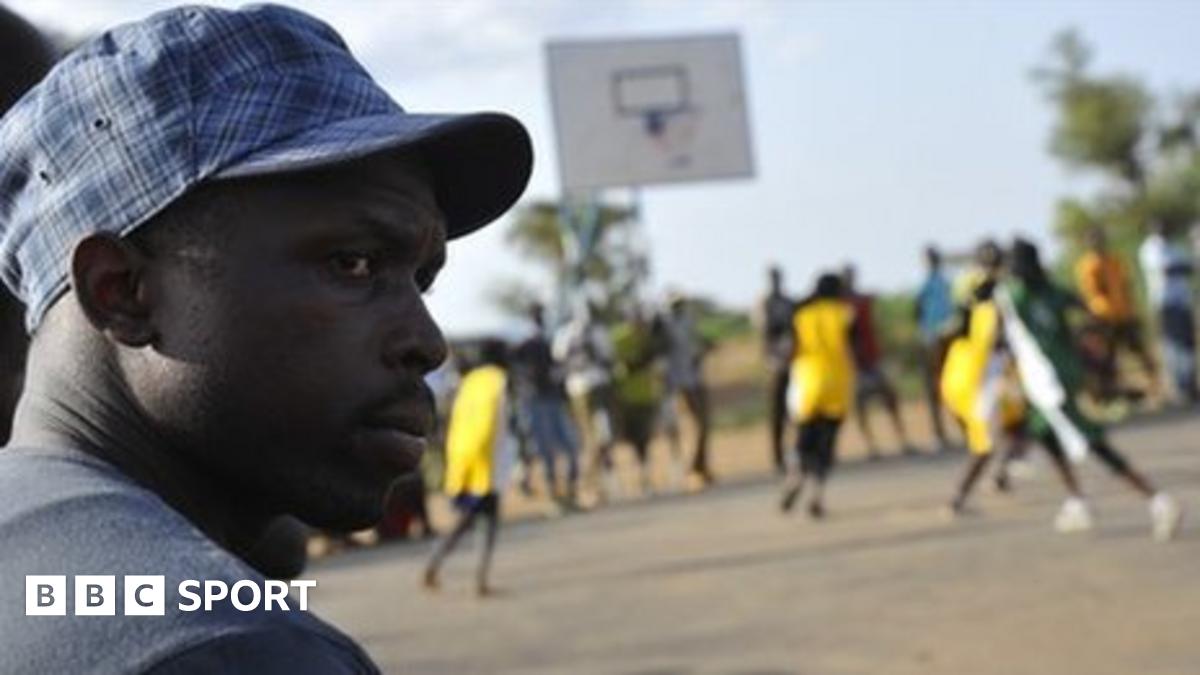
NBA superstar Deng returns to his Sudan roots
[ad_1]
Luol Deng does not seek the attention. Great Britain’s best basketball player is on a six-year $71m minimum contract with the Chicago Bulls, is lionised by President Barack Obama and counts Michael Jordan as a friend. But he also knows that his story – a child who, at the age of five, became a refugee – is rather ordinary here.
Yes, he had to flee the civil war, which was in the process of killing two million people. But he was lucky enough to be able to escape with the rest of his family and end up in Britain, where the Dengs were granted asylum.
So Luol has been cautious, almost to the point of prickliness, about being feted for his first return to Sudan. But now he has been handed a megaphone to address the hundreds of children surrounding him in an uneven rectangle.
He thanks them for “the best welcome I ever got in my life … and I’m so happy that I got it from home”. Then he switches gear. “If you work hard, if you listen to your teachers, listen to your parents,” he tells them, wheeling round to address the four sides, “you could be standing here”.
“Every one of you guys is capable of being somebody special. Maybe you will be the president of this country and one day you gonna lead us. You gonna lead us, and we’re going to have a great country.”
The reference is lost on no-one. In January, Southern Sudan is due to hold a referendum on independence from Khartoum – perhaps the most significant single part of the “Comprehensive Peace Agreement” of 2005, which brought decades of civil war to an end.
The Lost Boys
Hundreds of thousands of refugees have already returned. Many, though, are staying away. Among them, are some of the vast group known as “The Lost Boys”. They were children who ran, literally, as their villages were attacked. They hared off into the desert and the bush, often not knowing whether the rest of the families were alive or dead.
After years of aimless wandering, many of them ended up in Kakuma Refugee Camp, over the southern border, in Kenya. And many of those have stayed ever since.
The United Nations Refugee Agency, for whom Luol has worked in the past, has brought him and his older brother Ajou to Kakuma. On a hot morning, Luol meets about 20 “Lost Boys” under the shade of a broad tree, within the camp. He speaks to most of them in Dinka, painstakingly translating for us.
“They came to the village and burned the houses,” Luol explains, as Angelo talks to him in a flat, quiet voice. “He just got up and ran, ran for his life. He was 12. He left with nobody. He went to the jungle. Then he went to Ethiopia. He got here in ’92. He has no people back in Sudan. So he’s going to stay here.”
Building the future
Southern Sudan has a further problem. It still has some of the worst levels of development in the world. Information is scratchy, but recent relief agency figures have given the region the highest mortality rate in the world for women in childbirth. One in five children die before their fifth birthday.
For that reason, Luol Deng is far more than a tourist. Several hundred kilometres to the west of the capital Juba, deep in the bush, is Udici Basic School, which was laid waste during the war. Now the Luol Deng Foundation has helped to reconstruct some of the school buildings.
[ad_2]
Source link




